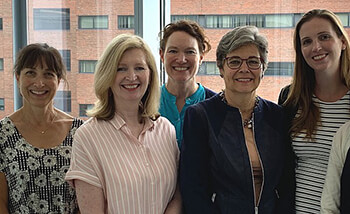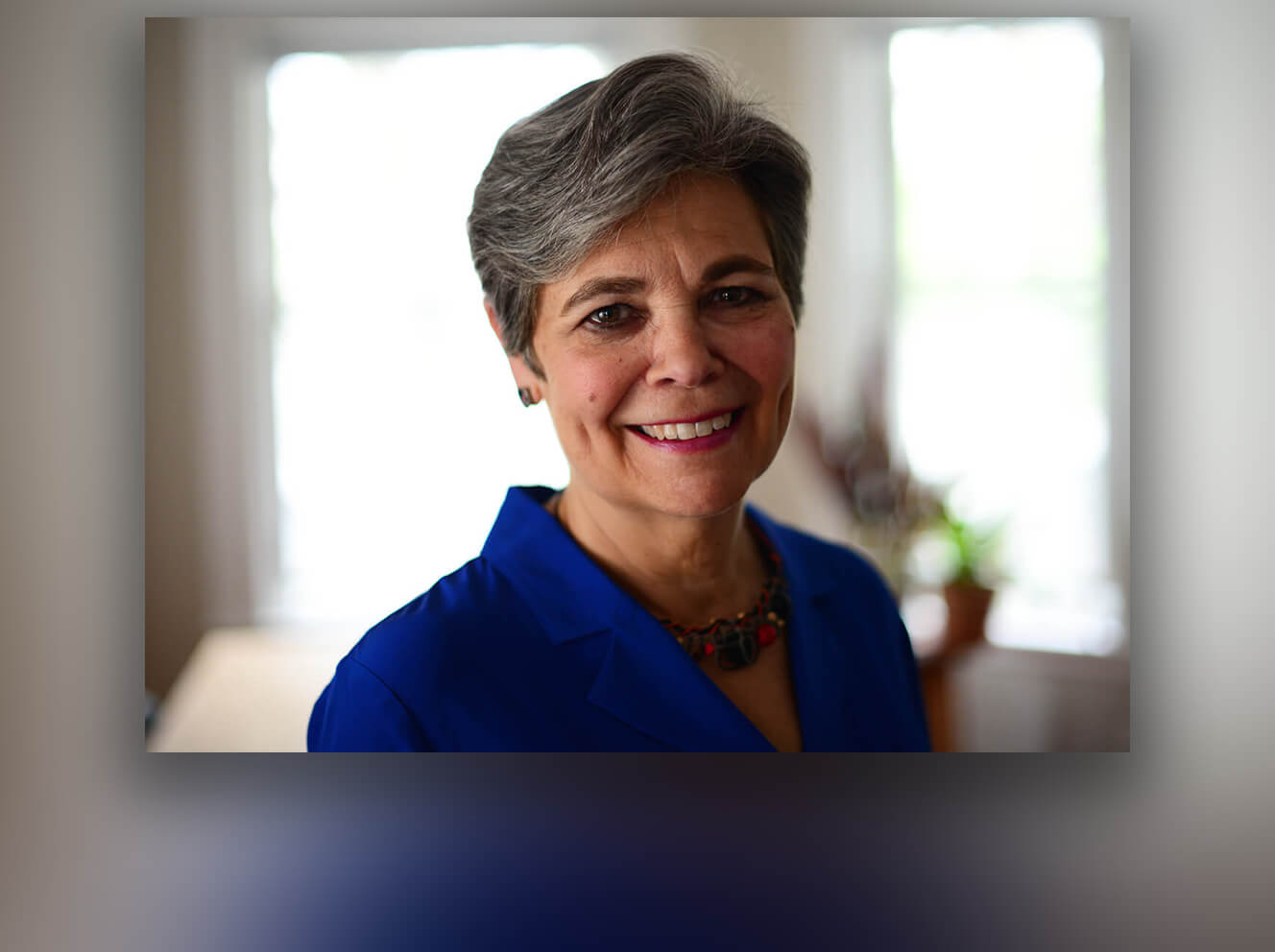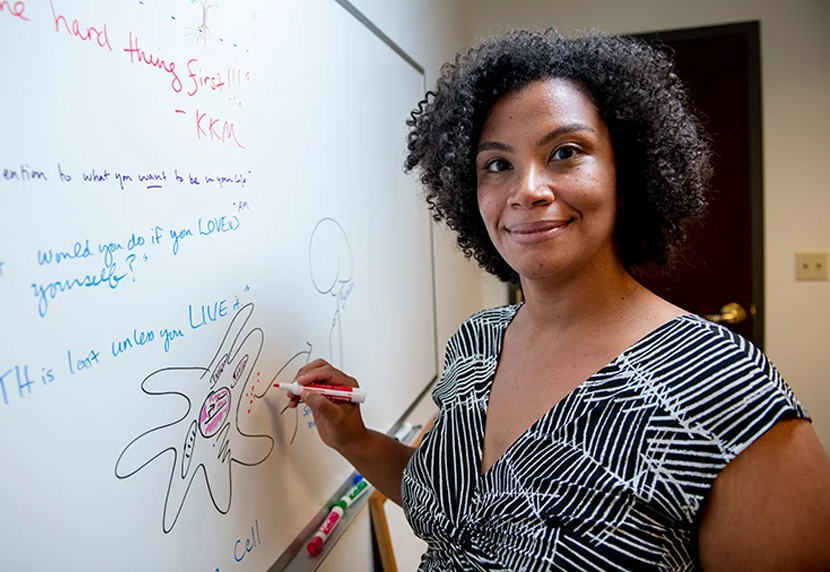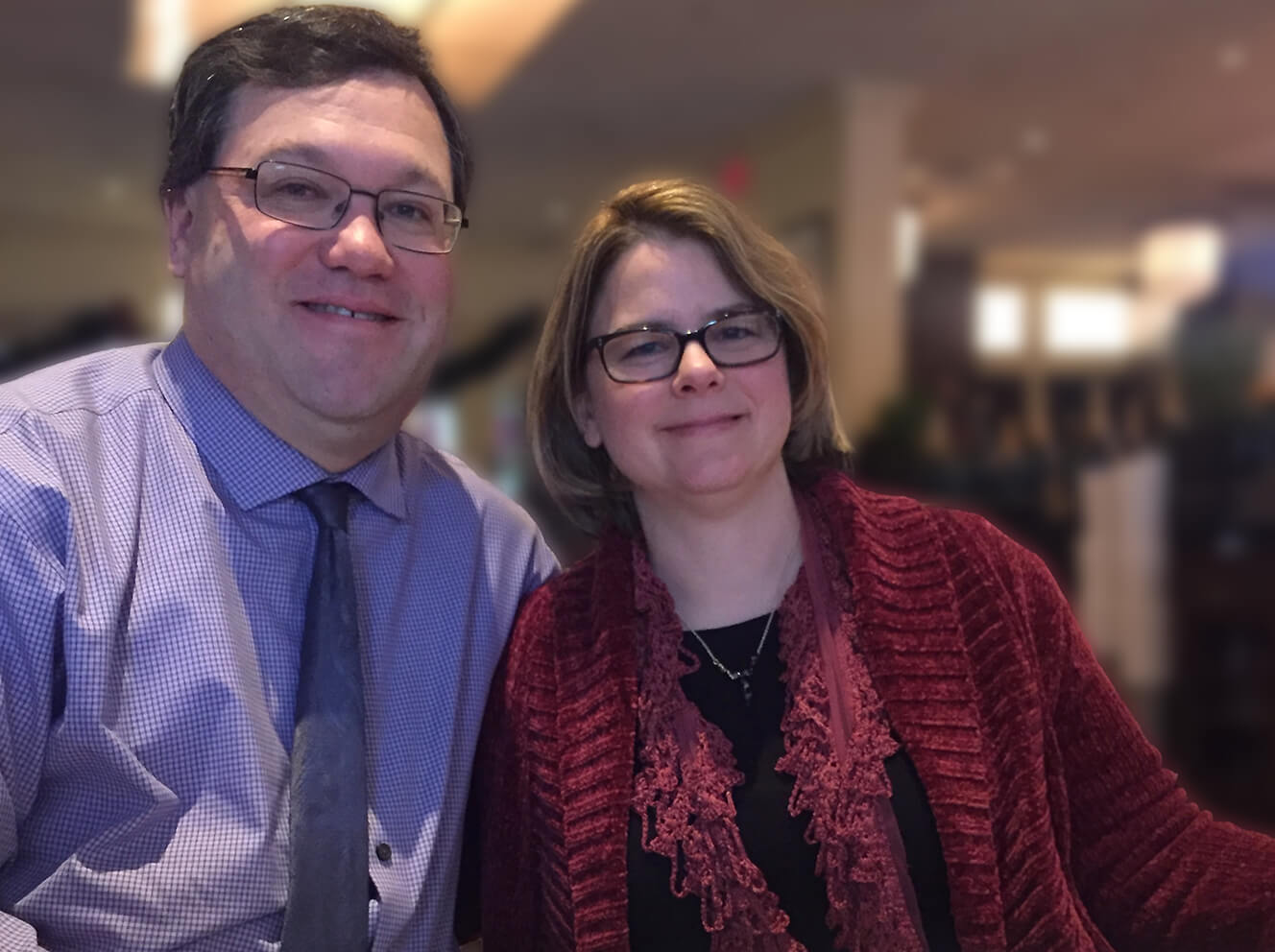A consultation child psychiatrist, Paula Rauch, MD, the Timothy Christopher Davidson Endowed Chair of Psychiatry, has served as the Director of the Marjorie E. Korff PACT (Parenting At a Challenging Time) Program since she founded it in 1997, with support from the Mass General Department of Psychiatry and the Mass General Cancer Center. PACT provides expert guidance to parents facing a cancer diagnosis, treatment and into survivorship. As director, Dr. Rauch has helped families face their most difficult moments — and trained many others how to do the same. With her retirement coming this summer, Dr. Rauch reflects on what motivated her to launch the program, its unique benefits for families and the team who will carry its work forward.
What inspired you to go into child psychiatry?
When I went to medical school, I wanted to be a pediatrician. I had volunteered with a wonderful pediatrician when I was an undergraduate at Amherst College, and during medical school I worked at a wilderness camp for elementary school children who lived at a residential school for emotionally challenged kids. But when I did my pediatrics rotation, I realized how short the interactions were. I knew I wanted more time with children and parents and I saw I could have that opportunity through child psychiatry.
What first brought you to Mass General?
From my first day interviewing at Mass General, it felt like the right place for me. I was lucky enough to walk into the hospital to begin my psychiatry training at age 26 and I never left. Mass General played a role in the history of consultation-liaison psychiatry, which focuses on caring for patients with comorbid psychiatric and general medical conditions. My many wonderful mentors in the field shaped my interest in what supports resilience for a child or adult who is ill and each of their family members. For the first 20 years of my career, I was an attending on the child psychiatry consultation service to pediatrics and served as the chief of that consultation liaison service for a decade. It afforded me the opportunity to see an enormous number of children and their parents as they negotiated the crisis of a seriously ill child. It also allowed me to teach psychiatry and pediatric trainees, at the interface between child development and medical conditions, which I have always loved.
What motivated you to start the PACT Program?
One of my good friends had breast cancer when her children were 5 and 7 years old. She asked me if I could refer her to a clinician who specialized in making sure children remained emotionally healthy through a parent’s cancer treatment and beyond. I thought there had to be someone in our community, but surprisingly, there wasn’t. Her experience helped me recognize the need for this expert parenting support then and now. Part of our mission at PACT is to educate more clinicians and to advocate for expert accessible parent guidance at every medical center where parents are being treated for serious illnesses. I have learned how fortunate we are at Mass General to have leadership in psychiatry, the cancer center and at the hospital that support our mission.

What were your goals for the program?
At the beginning, I wanted to both educate adult medical staff and help parents understand child development, so they could understand the intersection of challenges when a parent was ill and often facing untimely death. Over time, I came to recognize the enormous power of allaying the psychic suffering of parents that comes from worrying about their children without nuanced support. Our PACT team has gotten wiser with time because of the amazing parents we’ve had the privilege of collaborating with — the smartest, most practical guidance comes from this collaboration between the lived experience of loving parents and our expert clinicians.
What are some of the benefits of the program?
We have a wonderful team of experienced child mental health clinicians who will respond to parents the same day or the next day and this timely response is essential, because parenting questions can’t wait for weeks as an illness unfolds. We also have deep respect for the expertise of parents, so we’re providing tools and education to help them face the special challenges that accompany cancer care and that you wouldn’t expect a parent to know. This would not be possible without incredible philanthropy; our care is free to all patients. During the pandemic, we’ve discovered how fantastic telemedicine is for families who are juggling needs of children and cancer care.
When you look back at your career at Mass General, what mark do you hope that you leave here?
I am proud that I identified a need and, with many key supporters and collaborators, was able to create and sustain a remarkable program. I want the PACT Program to thrive and continue as a center of excellence, and under Cindy’s [Moore, PhD] wonderful leadership and with our incredible team, I am confident that it will. I’m also proud of 40 years of training clinicians who go on to have meaningful careers. I like to say our trainees are like rocket ships, and I get to put bagged lunches on their rocket ships. I love to hear back from clinicians who remember things they learned from me, the way I remember things from the clinicians who trained me. I hope that there are many children and parents who are better off because of care from me or someone I helped train.
In the end, there are so many life-affirming aspects of this work. I’ve had the privilege of seeing how much people care about their children, how resilient children can be, how creative parents are and how fun and funny their children can be. It’s such a personal experience to be there for someone at a challenging time, and I am incredibly grateful for the past 40 years.
Dr. Rauch is on her way to raising a $1 million endowment to support the Marjorie E. Korff PACT Program. To contribute to her efforts or to learn more, please contact Isabella Camelo at icamelo@mgh.harvard.edu or 617.643.2409.



